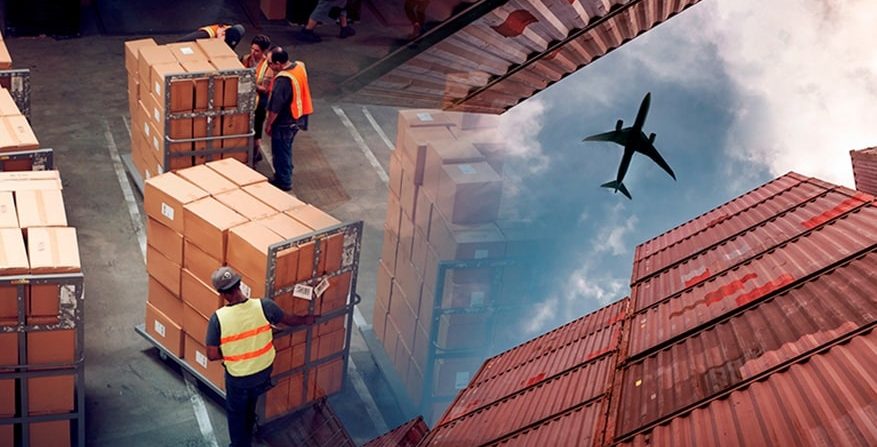
Having an import-heavy business is no easy feat. You must manage complex supply chains, unpredictable demand, evolving customs rules, and rising warehousing costs. These issues can hinder your operations, delay deliveries, and frustrate customers, especially when efficiency is lacking. Sometimes this means you lose sales to your competitors, who can deliver more quickly and at a lower cost.
Traditional logistics models operate as a series of functional silos, where each piece of the supply chain functions independently, and while helpful, it fails to meet the operational demands adequately. This is where integrated logistics can significantly help any import-driven business. Integrated logistics takes a modern approach to logistics by consolidating all facets of the supply chain into one unified solution.
This article will explore how integrated logistics can improve operational efficiency for import-driven businesses.
Integrated logistics is an advanced solution that integrates warehousing, transportation, inventory, customs, and fulfilment all into one system. Integrated logistics technology consolidates the entire scope of logistical activity into a single system, eliminating the uncertainties that arise from a traditional supply chain, where each component operates independently. When all parts of the supply chain are equipped and functioning within the same system and information, there is nothing to assume or doubt.
The key components of integrated logistics include:
Additionally, with tools such as Transportation Management Systems (TMS) and Enterprise Resource Planning (ERP) software, businesses can track shipments in real-time, identify the most efficient routes, and make informed decisions based on data.
Import-heavy businesses face a unique set of challenges that can disrupt operations and erode profitability. Here are the most common pain points:
External factors like fluctuating exchange rates, geopolitical instability, or supply chain disruptions can also magnify these issues.
Integrated logistics tackles these challenges head-on, offering a range of benefits that enhance operational efficiency for import-heavy businesses:
By unifying all this, you eliminate the traditional supply chain bottlenecks and, in turn, improve efficiencies. If the same carrier is providing transportation and warehousing, they can take this transportation and the speed of the facility into account when planning the best delivery routes using the least expensive and quickest modes of transport.
Integrated logistics providers offer solutions like pay-as-you-go warehousing, flexible storage, and optimised transportation routes. These help businesses avoid paying for unused space or inefficient shipping methods. For instance, WareOne logistics company provides tailored pay-as-you-go warehousing solutions that help import-heavy businesses reduce logistics costs by offering flexible storage options that scale with demand.
With real-time tracking, inventory dashboards, and data analytics, businesses have total transparency in their supply chain. Thus, they can make decisions in advance, such as rerouting shipments or adjusting inventory based on demand. Take, for example, if a shipment is held up in customs, you can notify your clients immediately and make changes to your production plan without disruption.
Integrated logistics solutions are designed to scale with your business. Whether you’re dealing with a surge in imports during peak seasons or a slowdown during off-peak periods, the system can adapt without compromising efficiency. This flexibility is critical for businesses with seasonal or fluctuating demand.
Handling customs clearance and regulatory compliance is a complex task, especially for businesses importing from multiple countries. Integrated logistics providers have the expertise to manage documentation, tariffs, and regulations, reducing the risk of errors, fines, or delays. This ensures smoother operations and minimises costly disruptions.
These benefits collectively enhance the resilience and efficiency of the supply chain, enabling businesses to stay competitive in a global market.
Selecting the right integrated logistics partner is crucial to realising these benefits. Here are the key criteria to consider when making your selection:
For businesses seeking a reliable and innovative partner, WareOne logistics company stands out as a top choice. With their expertise in integrated logistics, WareOne offers tech-driven, scalable solutions tailored to the needs of import-heavy businesses, ensuring efficiency and cost savings.
Integrated logistics offers an effective solution to the complexities of supply chains and unpredictable demand, whilst requiring compliance. Integrated logistics unifies all logistics functions into a single system, saving effort, money, increasing visibility, and enabling a scalable service. By pursuing an integrated approach, you improve profitability to import heavily, as well as improve customer satisfaction by speeding and reliability in the delivery of goods to customers.
As the world becomes increasingly and rapidly a global marketplace, integrated logistics solutions provide a true opportunity for strategic advantages to be competitive. Companies need to explore integrated logistics solutions by working with proven providers to develop the right import solutions. When a company can demonstrate the right shipper partner to a customer, they have won the battle against the complexity of international trade. They can focus on opportunities to develop profitable businesses.
If you want to enhance your operational efficiency, integrated logistics is what you need.



